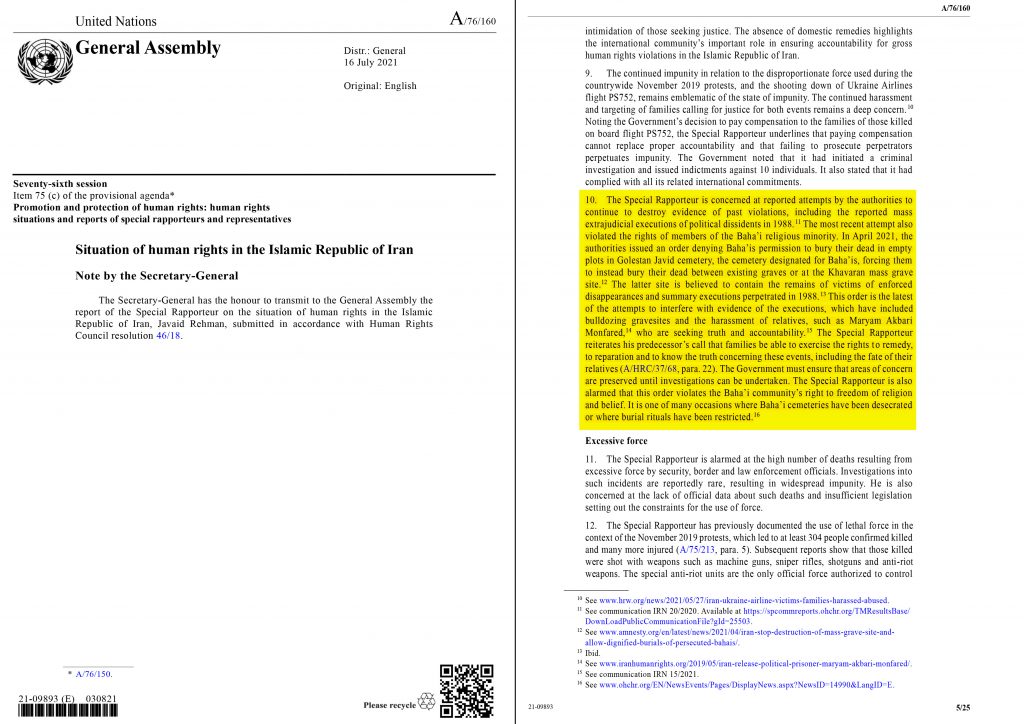The United Nations Special Rapporteur on the situation of human rights in the Islamic Republic of Iran, Professor Javaid Rehman, raised concern regarding the destruction of evidence of extrajudicial executions of political dissidents in 1988 in his report of 16 July 2021 to the General Assembly on the Situation of human rights in the Islamic Republic of Iran.
Paragraph 10 of the report (A/76/160) reiterates his predecessor’s call that families of the victims of the 1988 massacre be able to exercise the rights to remedy, to reparation and to know the truth concerning these events, including the fate of their relatives.
See paragraph 10:
The Special Rapporteur is concerned at reported attempts by the authorities to continue to destroy evidence of past violations, including the reported mass extrajudicial executions of political dissidents in 1988. 11 The most recent attempt also violated the rights of members of the Baha’i religious minority. In April 2021, the authorities issued an order denying Baha’is permission to bury their dead in empty plots in Golestan Javid cemetery, the cemetery designated for Baha’is, forcing them to instead bury their dead between existing graves or at the Khavaran mass grave site.12 The latter site is believed to contain the remains of victims of enforced disappearances and summary executions perpetrated in 1988. 13 This order is the latest of the attempts to interfere with evidence of the executions, which have included bulldozing gravesites and the harassment of relatives, such as Maryam Akbari Monfared,14 who are seeking truth and accountability. 15 The Special Rapporteur reiterates his predecessor’s call that families be able to exercise the rights to remedy, to reparation and to know the truth concerning these events, including the fate of their relatives (A/HRC/37/68, para. 22). The Government must ensure that areas of concern are preserved until investigations can be undertaken. The Special Rapporteur is also alarmed that this order violates the Baha’i community’s right to freedom of religion and belief. It is one of many occasions where Baha’i cemeteries have been desecrated or where burial rituals have been restricted.16
For the full text of the report, download the PDF here.

